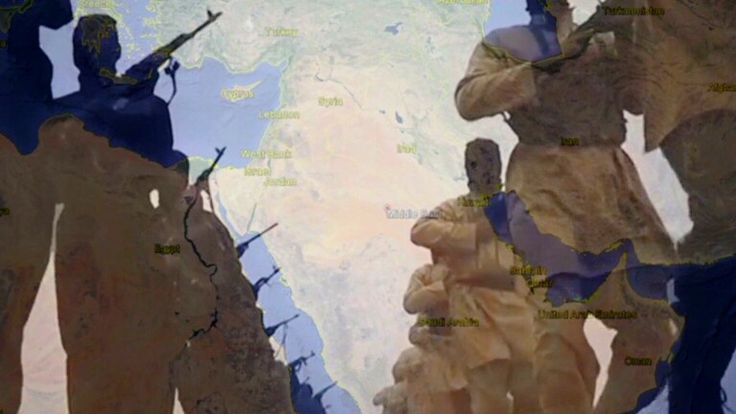As military engagement in Iraq escalates again, terror organization Islamic State in Iraq and Syria (ISIS) has captured much of the media attention.
President Barrack Obama announced the United States would be conducting airstrikes of strategic targets in Iraq while supporting local armed rebels to combat the group on ground in Syria. “Not only is ISIS destroying communities it is literally cutting the heads off culture,” said Haroon Ullah, author of Bargain from The Bazaar, and a U.S. diplomat serving on Senator Kerry’s Policy Planning Staff.
He emphasized the terror group has little support in the Middle East but its ability to adapt and strategize surpasses that of AlQaeeda and any policy to degrade the organization would have to be as calculating as the enemy. “My greatest fear is that five years from now, we’ll still be talking about this challenge,” Ullah said at a forum hosted by International Relations Council’s on Sept. 18, 2014; he said the group is a sophisticated network that is well funded and savvy in recruiting fighters worldwide through social media.
Displaying a world map, Ullah said nearly 7,500 foreign fighters hailing from as far away as Chile are traveling to Iraq to join forces with the militants. He likened ISIS to a business with a careful strategy focused on generating independent income revenues through sales of crude oil, controlling banks and antiquities.
“They are underselling it,” he said, but the loss is generously supplemented by Saudi elites bent on curbing the rise of Shia dominance in the region. “ISIS filled a vacuum,” created by instability of war and sectarian violence and preyed on the population’s perceived grievances, said Ullah. What the group lacks in a charismatic leader it fulfills with acquiring strategic control of
“They have positioned themselves as the legitimate opposition,” he said, adding the terror group is expert in customizing the message to the target audience. Displaying a photo of a handmade ISIS flag poster in front of the Manhattan skyline, Ullah said the group is proclaiming its presence is global.
That is further evident by its use of social media, such as Facebook and alternative social networks to lure recruits to abandon their lives in the West and join as combatants in the Middle East. Ullah said the recruits are not products of poverty but, in fact, hail from middle class families.
Ullah said comparing ISIS to the archaic techniques of AlQeeda would be similar to equating a third grader against a high school graduate. ISIS portrays a strong narrative of change in the region by cloaking itself in religious rhetoric yet displaying unabashed hypocrisy in mass murdering Muslims. Religious scholars have unequivocally denounced the terror organization to discourage youth from joining the group.
Ahsan Latif, President of Crescent Peace Society said Muslim Americans bear the responsibility of reaching out to neighboring communities to strengthen relationships and debunk myths that Islam cultivates terrorists. More importantly, he said, Muslim-Americans have a responsibility to reach out to those within the community who feel marginalized, and support them.
Ullah said discrediting the group in the eyes of its potential supporters is a crucial first step in curtailing its influence. This is apparent in the pan-Arabian media which refer to the group as Daesh; “which translates to a mad horse,” he said.
The derogatory term is despised by the group because of its historic connotation in the region. Ullah said the group’s ultimate goal is political control of the region. He compared it to a regional mafia bullying and intimidating local community.
The war against ISIS does not have an easily distinguishable solution, said Ullah; involving regional partners is critical in any strategy to eliminate the ISIS threat, and a new approach is needed.
“The past four U.S. presidents have bombed Iraq,” he said; the instability of war fuels terror groups and external parties seeking regional dominance.
By; Arooj Ashraf
/129

